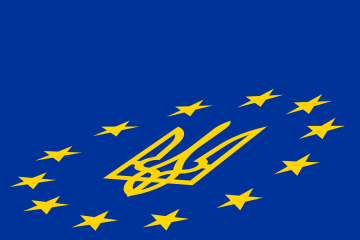- Category
- Life in Ukraine
On Why Women Stay, Fight, Leave, and Come Back to Ukraine Amidst War
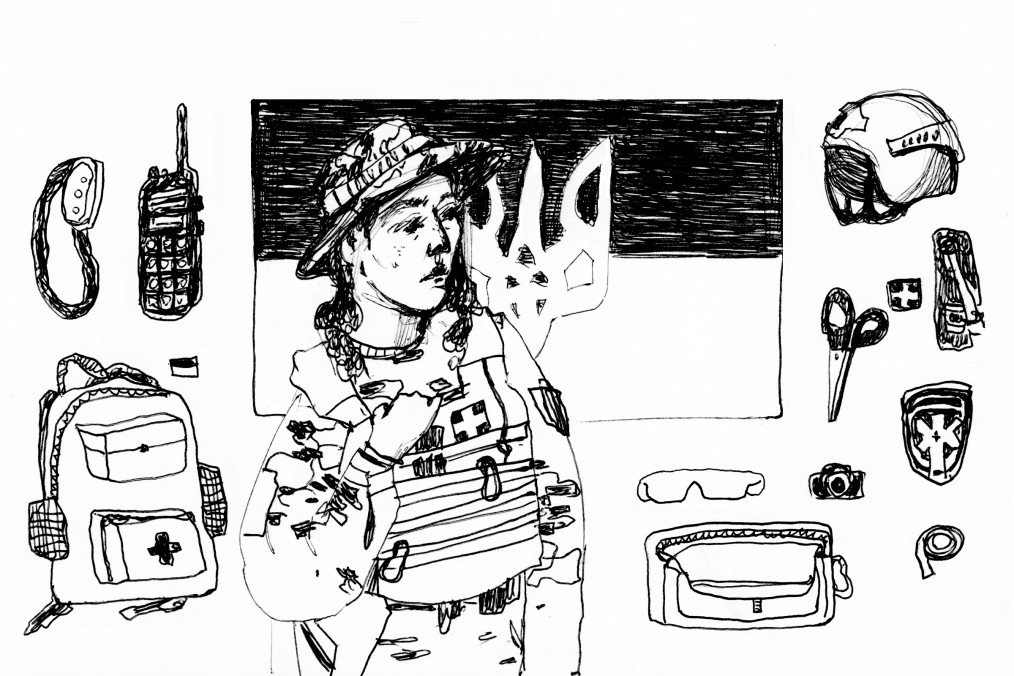
When a decision is made, it always comes with a known certainty—uncertainty. Safety is never truly guaranteed, risks are never fully outlined, and no answers or fix-all solutions are ever offered, but Ukrainian women refuse to simply give up.
Distinguishing between the different types of bangs, cracks, snaps, whistles, and thuds one can hear in Kyiv has become so effortless and natural for Katya—a young woman living in Ukraine’s capital—that she can instantly identify the source of danger. “It’s nothing to worry about,” the twenty-something tech worker told me on a call—reassuring me that the sound I was hearing outside her window this time was, in fact, thunder and not a missile explosion. “If it were something serious, I would have warned you.”
To an outsider, Katya might emanate the confidence of someone who has the situation under control. But in reality—and like millions of other Ukrainian women who decided to continue living in the country post Russia’s full-scale invasion—she is aware that control is limited and highly short-lived, extending to a matter of minutes or even seconds. Despite this realization, for many, the decision to stay or to leave boils down to picking between certain risks in Ukraine or uncertain risks abroad.
“Obviously I considered going abroad from day one, but how could I, when everything and everyone I love, my family, my husband, my friends, and my dog, are here? I know that I am not fully safe in Ukraine, but how could I go and not worry about the safety of my loved ones back home?”, explained Katya. This rationale seems to be a common one for people who choose to remain in conflict areas or war zones.
Deciding to stay
Nadine Biehler, a German researcher at the German Institute of International and Security Affairs, argues that current migration studies have a “mobility bias,” meaning that researchers mainly focus on the experience of populations that leave rather than those that stay—even though the proportion of the former is much smaller than widely assumed. She argues that—for women especially—the decision to stay or leave is often made based on their considerations of how their personal choice will influence the lives of those important to them.
“I had to consider the situation of every relative,” Valeria, a 34-year-old internally displaced woman from Kherson Oblast currently based in Khmelnytskyi, recalls her decision to remain in Ukraine. “I think I spent the majority of my time in the bomb shelter early on trying to figure out the logistics of it all. How am I going to get myself, my mother, my disabled father, my elderly grandparents, and two dogs not only out of occupation but out of the country in general?” The choice, she tells me, was never just about her.
“I knew I would be fine if I were by myself, as I could speak English, but I could not say the same about my family. How are they going to survive without language skills? How are they going to buy bread without my help in the shop? Call the ambulance if needed? Use public transport? It all boiled down to whether they could take care of themselves and the answer, unfortunately, was no. So, in a sense, relocating within Ukraine was a strategically sounder decision, but it wasn’t at all an easier one. I had to practically beg my father to leave behind the only town he knew.”
When I ask Valeria about her future plans, she smiles and answers that she has to check with her family.

Coralina, an ex-marketer in her early thirties, recognizes that a woman deciding to stay in a war-torn country despite the opportunity to leave is more of an anomaly.
“I wonder what that makes me?” she laughs. Coralina is one of the roughly 80,000 women serving in the Armed Forces of Ukraine.
Our conversation happens online, while she joins the call from her apartment in Kyiv. In her own words, this is a rare occurrence, as the only reason she is on “holiday” for a few days is because of a mandatory medical check-up. “If it wasn’t for this, I don’t think I would allow myself to take a rest. I go to bed each night and wake up every morning with an overwhelming sense of responsibility. If I don’t do what I am doing today—who will?”
Coralina shared that her decision to join a Territorial Defense Battalion was part personal responsibility, part desire to protect her loved ones. “I think the breaking point for me was when I found out that a group of 7 to 8 armed Russian soldiers visited my parents’ house in occupied Vasylivka, Zaporizhzhia Oblast, looking for me.”
“They found out I was responsible for organizing an online group, which mainly helped people in Vasylivka find medication and needed supplies, but, among other things, it also assisted our soldiers in locating Russian positions in the city. At the end, our little group helped destroy more than 250 units of equipment. Anyway, my concern wasn’t even about myself, I just knew I had to do something to protect the people and the country I love.”
When I asked Coralina if she had considered leaving Ukraine at the beginning of the full-scale invasion, she said that it was a possibility, but only ever just that. She explained that even though she had people in France, a host family she stayed with during her student days, offering her their home, she could not leave her own home behind. “Nobody is born for war, but when war happens, you have to do what is right. I do not judge those who legally decide to leave the country. Still, I do judge those who are not doing anything to contribute to the greater good, to our collective future. No matter where you are in the world, I truly believe that if you are a Ukrainian, you can and you should help your country. We should all work together.”
Deciding to leave
As of April 2024, nearly 6.5 million people left Ukraine—with more than 80% of refugees being women. Deciding to leave the country also comes with its own challenges. How fast, and how well can a person integrate within society? Find a job, learn the city and local customs, form connections, recover? When it comes to the latter, Dr. Judith L. Herman mentions in her book “Trauma and Recovery: The Aftermath of Violence From Domestic Abuse to Political Terror”, that recovery unfolds in three stages: the establishment of safety, remembrance and mourning, and the reconnection with ordinary life. However, how can recovery for Ukrainian women begin when the foundation of safety cannot be fully established?
Sophie, a 24-year-old woman, has moved four times within Europe since the start of Russia’s full-scale invasion. She tells me that there is no “off” button for being Ukrainian:
“No matter where I am, I carry my experiences and who I am with me,” she shares online from her apartment in Tallinn, Estonia. “Being a refugee is very difficult. Right now I have no permanent home, no certainty and a vague idea of the future ahead. Being a woman makes my experience living abroad infinitely riskier, as I am aware, that some people want to use my vulnerability to their advantage”.
She recalls a situation in which the train she was expecting did not arrive, and she got in a car with a group of Polish men who promised to take her to the airport hours away in Warsaw. “I was lucky it ended well. Being a refugee means that there are going to be a lot of situations where you have to make risky decisions just because you do not have another choice.”
The authors of “Sex and World Peace” mention, that since Ukrainian women faced prior fetishization, such as being “submissive” and “the most beautiful women in the world,” or harmful stereotypes, that labeled them as “mail order brides” or “easy, because they are poor”—which is an actual remark made by Brazilian political Arthur do Val—upon becoming refugees, they were more than usual subjugated to human trafficking and exploitation.
Tara, a 21-year-old woman from Bucha—whose name I have amended in accordance with her wish to remain anonymous—was a survivor of sexual assault by a host, who was offering a room for Ukrainian refugees coming to the United Kingdom.
“Coming to England was a dream come true to me,” she recalls. Even before the war, I was hoping that someday I would get the chance to visit. I cannot lie; I did not imagine it would happen under these circumstances, nor could I have expected to live through what I did, but I guess the main thing is that I am actually alive.”
She takes a deep breath and pauses before proceeding, “it’s funny how the mind works because I can remember the 24th of February minute-by-minute. I can remember every single day I lived under occupation, but I cannot fully recall my assault. All I remember is that he didn’t even allow a week of grace, to settle down, to —”, she cuts herself off and laughs, “I just realized that I am speaking about what happened to me like it was expected. But it wasn’t. For me living with him was a second chance at life, but for him, it was a chance to get away with a crime. We had different ideas of why I was there.”
Although Tara was able to rely on the support of a local NGO led by Ukrainians, which helped her file police reports, get needed medical and psychological assistance, and find a safe place to stay, she could not help but mention to me multiple times during our call just how lucky she was that what happened to her was the only thing that happened.
In situations like Tara’s, it is critical for a woman to have the right to access abortion. However, that is not the case for many Ukrainians. Poland, for instance, is currently the leading country to take in Ukrainian refugees (offering a home for roughly 1.6 million people) due to its geographical proximity. However, it is also a country where abortion is illegal.
Diana, 32, who relocated to Krakow within the first week of the war, shared her concern about the situation with reproductive rights within Poland. “I am constantly worried about all the what-ifs. I know women, who had to give away their life savings to travel to a country where abortions are legal.” Diana does have a valid point since rape is not simply an accident of war, but a deliberate tool of asserting power and terror, it is a weapon.
Coming back home
When things abroad start feeling too overwhelming and too uncertain, coming back home seems like a natural thing to do.
“It was a very interesting experience for me—explaining to my professors and classmates why I want to go back and continue my studies in Ukraine”, said Julia, a third-year psychology student, who returned from Kyoto to Kyiv to continue her education. “I moved to Japan just months after the invasion, and although I directly didn’t see the horrors of war, just by following the news I felt like I was in the center of it all.”

Julia explained that even though Japan has done so much—from offering free housing, covering study costs, and providing access to free language courses to covering her flight tickets and furniture expenses—to assist her integration, she never truly felt safe in Japan.
“The whole experience was so strange because I was in a permanent fight or flight mode. I went to a psychiatrist, and he fairly quickly diagnosed me with PTSD. I was stunned. How could I be experiencing PTSD in one of the safest countries in the world?”
Julia’s surprise is not uncommon, as most people are not aware of the fact that PTSD is characterized by excessive fear responding to trauma reminders—for example, sounds of fireworks, helicopters, sirens—that persist in the presence of safety reminders. Although Ukrainian women might live in physically safe environments, they continue to carry the war inside them.
Uncertainty
Being Ukrainian means knowing that no matter where you are, you cannot escape the war. When the decision to stay, leave, or return is made, it always comes with a known certainty—uncertainty.
Safety is never truly guaranteed, risks are never fully outlined, and no answers or fix-all solutions are ever offered, but Ukrainian women refuse to simply give up. They refuse to be the victims of a so-called “fate.” They bend, twist, and shape their own realities. “Everything I do is with Ukraine in mind,” the women I spoke to told me in unison.
-38556bf61e11af04a17331caebf42b61.jpeg)
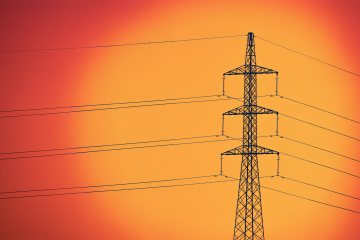

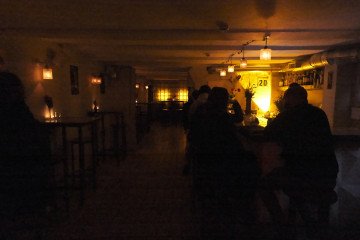
-b8fcbbfe52c8c4ebd7d839f8da0d3498.jpeg)
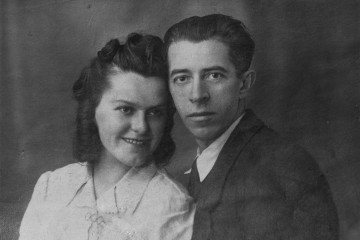
-41bc41e52a68266d55886ab9c15e949c.jpg)
